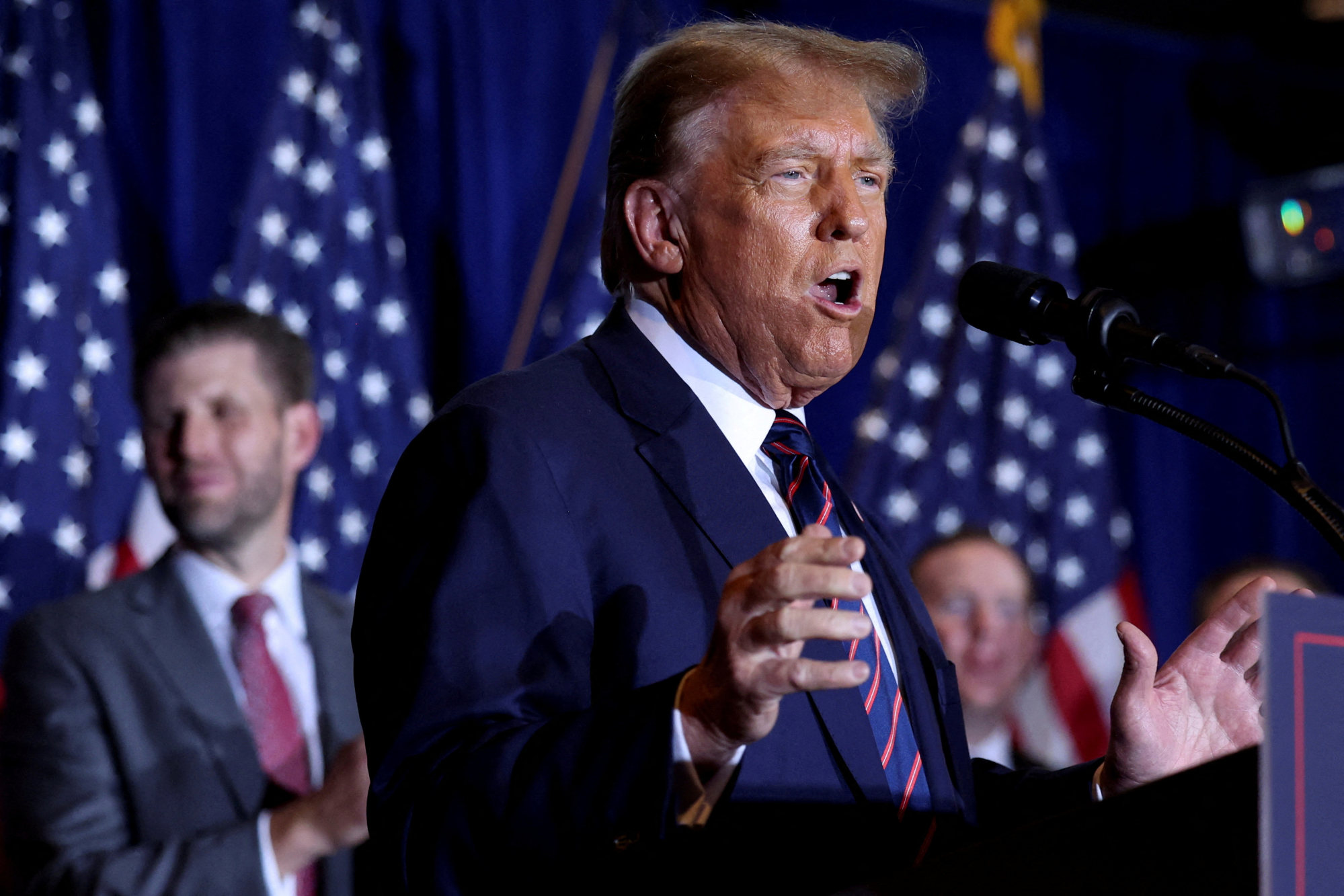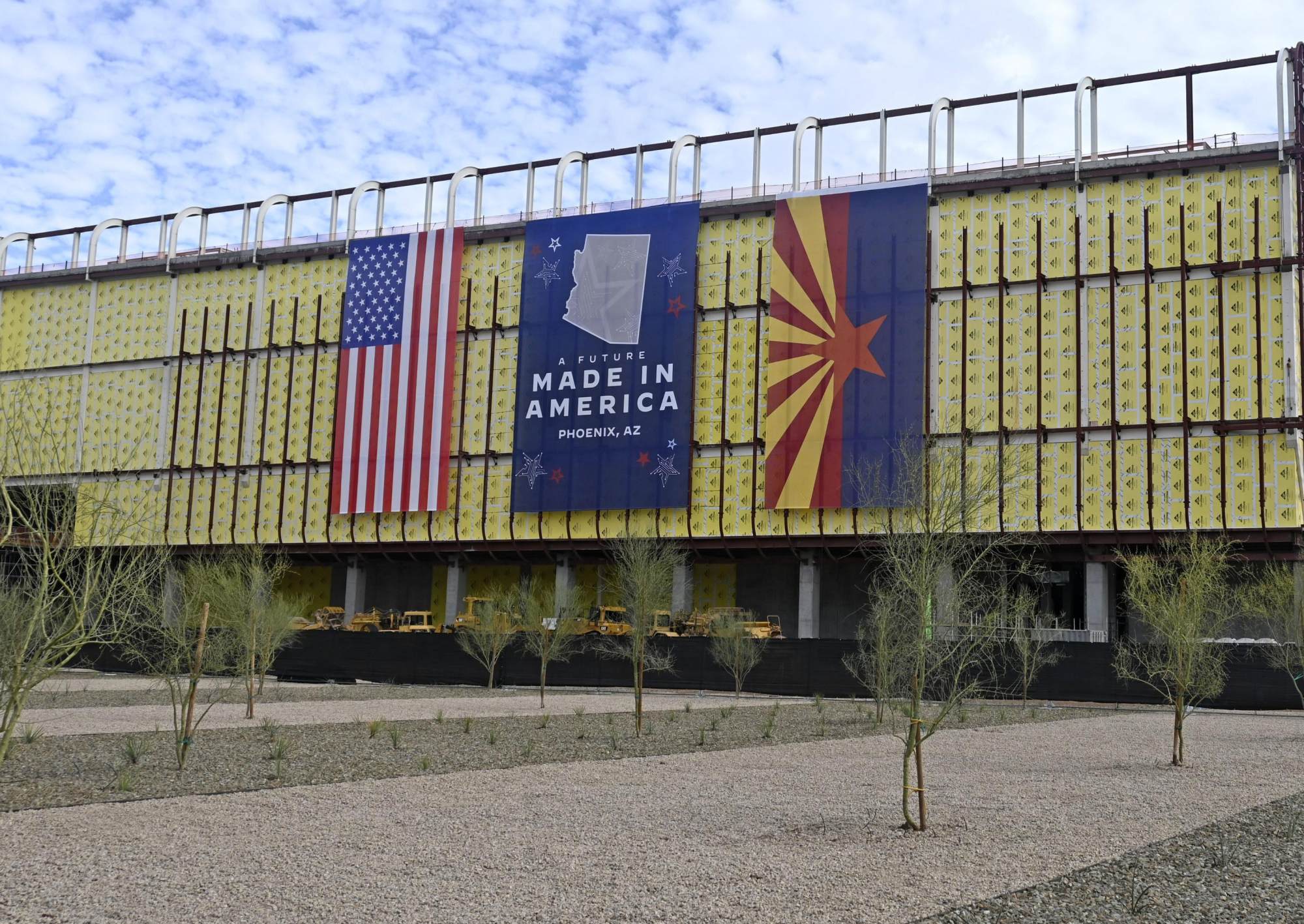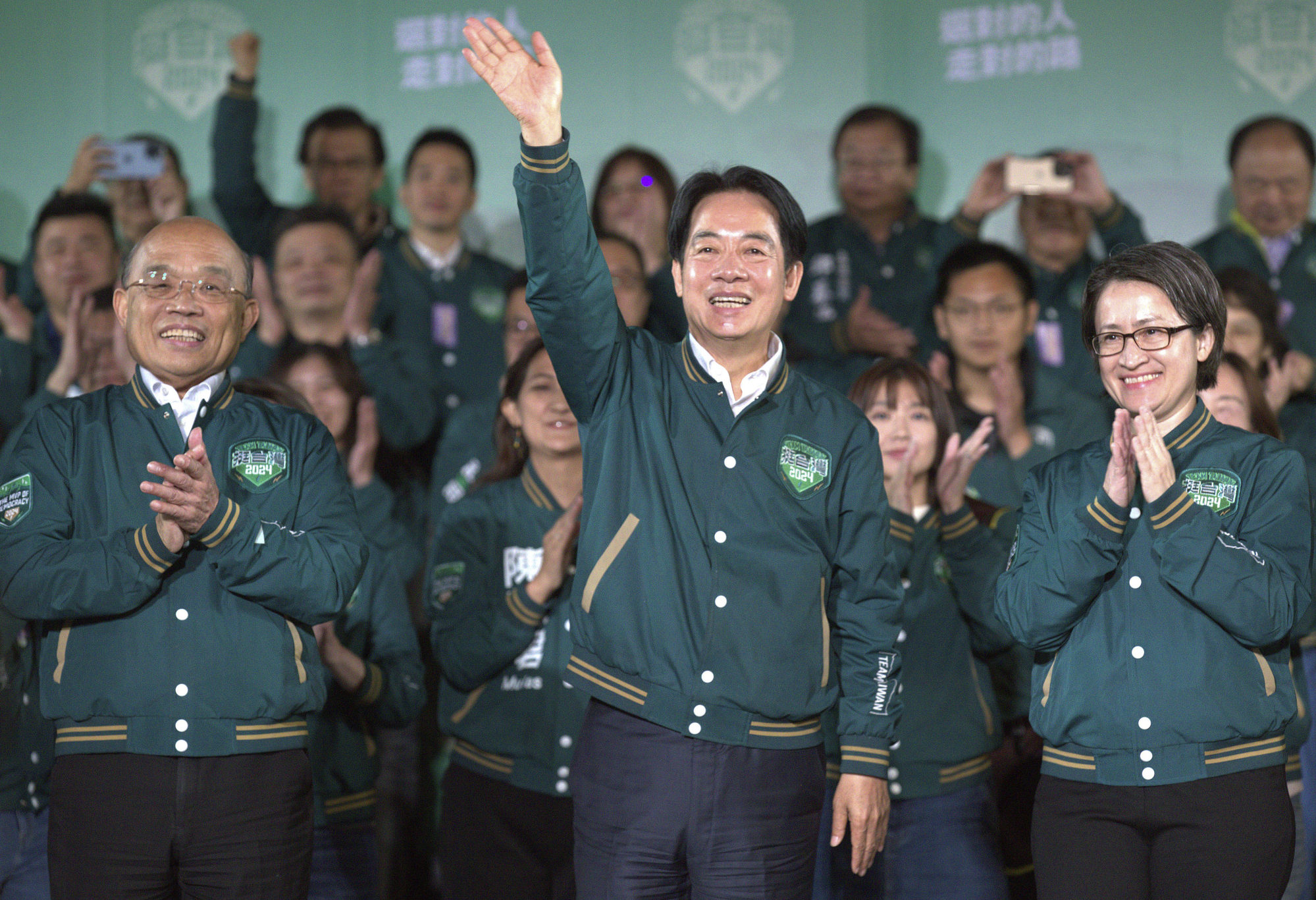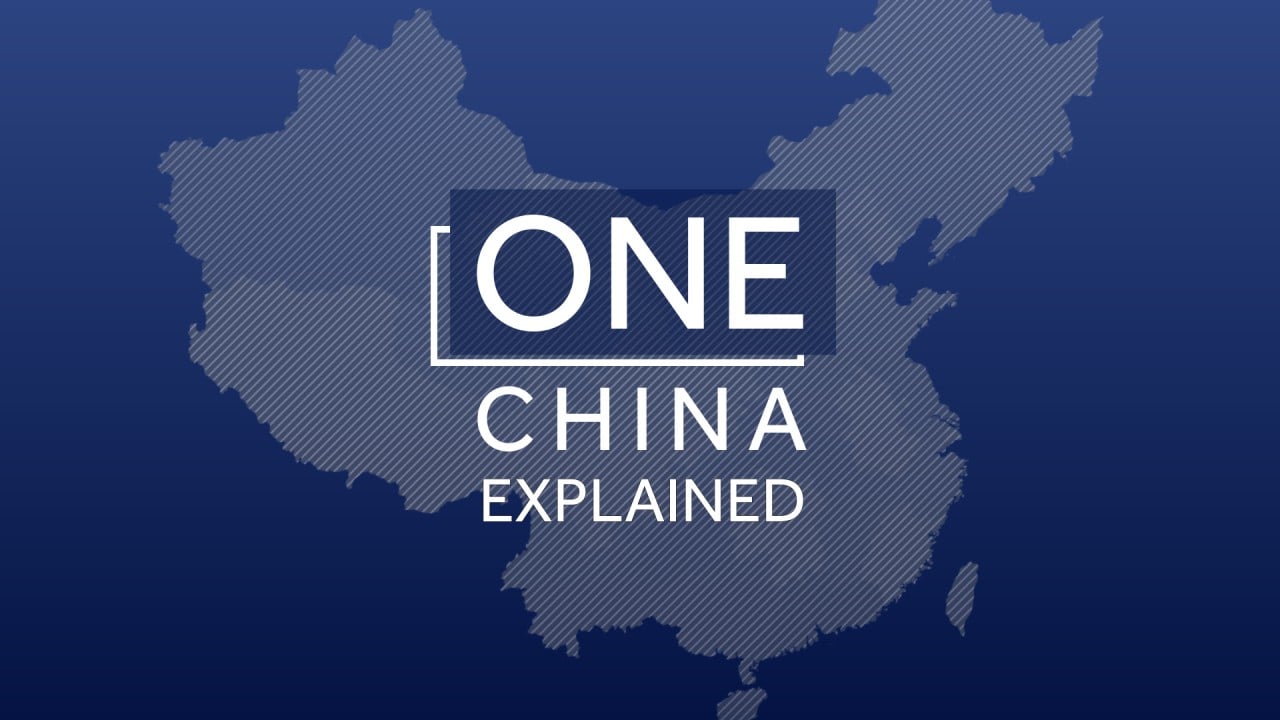Trump kept the Taiwan card close to his chest – unlike the incumbent US president Joe Biden, who has said that America would get involved if Beijing invaded – but he expressed his unhappiness with the island’s success in becoming the planet’s leading semiconductor manufacturer.
“They took our business away,” he said.
“We should have stopped them. We should have taxed them. We should have tariffed them,” added Trump, who in 2018 initiated a trade war with Beijing.

Since those remarks resurfaced, the twice-impeached former president won another victory in the New Hampshire primary, and leads his last challenger for the Republican nomination, former UN ambassador Nikki Haley, in all polls ahead of South Carolina, the next primary on February 24. His bid to become the party’s candidate against Biden, the Democratic Party’s presumptive nominee in the November 5 general election, seems assured.
Many Americans prefer neither contender, in what is likely to be a sequel to the 2020 election, when Biden defeated Trump. According to the latest Reuters/Ipsos poll, Trump leads Biden by six percentage points.
Trump 2.0 will be chaotic, not just for the United States, but for the whole world
Voters in several states have also sought Trump’s disqualification from their ballots because of his alleged support of the insurrection on January 6, 2021; the US Supreme Court is expected to rule on those challenges soon.
Analysts said that a Trump re-entry into the White House would come with the chaos that marked his four years in the Oval Office, creating uncertainty in Washington’s relations with the rest of the world.
Most anticipated similar unpredictability for Trump’s future position on Taiwan, saying that he had suggested during his first administration that the issue was not a priority for him.
Indeed, the Trump campaign website posts 46 position papers, going back to 2022: none so much as mention Taiwan.
Trump test could prove toughest challenge for Taiwan’s next president
Trump test could prove toughest challenge for Taiwan’s next president
“I think Trump 2.0 will be chaotic, not just for the United States, but for the whole world,” Kishore Mahbubani of Singapore’s Asia Research Institute cautioned, stressing how hard it was to predict Trump’s agenda.
Mahbubani, who served as president of the United Nations Security Council from 2001-2002, described Trump as simply not caring about Taiwan, and said if his indifference continued in a second term, it would be a “major geopolitical gift” to Beijing. He argued that Trump lacked long-term vision and was not interested in “sentimental” relationships.
Beijing regards Taiwan as a rogue province, to be eventually united with the mainland – by force if necessary. Most countries, including the US, do not recognise Taiwan as an independent state, but Washington is opposed to any attempt to take the self-governed island by force and is committed to arming it.
Bonnie Glaser of the German Marshall Fund of the United States also said that Trump did not regard Taiwan as a major foreign-policy priority. “But we just don’t know whether Trump would change his views,” she said.
Glaser predicted “a lot of pressure” from members of Congress amid a bipartisan support for Taiwan; however, it was important to note, she said, that Trump had “never come out and said that he would not defend Taiwan”.
To Thomas Parker of George Washington University, author of American Presidents in Diplomacy and War, Trump remains more interested in “the balance of payments than the balance of power” since he tends to reduce all problems into “economic issues, which he certainly does towards China”.
Even before taking the oath of office, Trump sparked a diplomatic row when he accepted a call from Taiwanese President Tsai Ing-wen congratulating him on his victory in November 2016. No other US president-elect or president had done so since 1979, when Washington established formal diplomatic ties with Beijing acknowledging Taiwan as part of “one China”.
When Beijing expressed anger over the call, Trump retorted that he wouldn’t be “dictated to”. Later asked about breaking protocol, he told Fox News that he did not understand why the US was “bound by” a commitment to honour the one-China policy “unless we make a deal with China having to do with other things, including trade”.
After controversial call with Tsai, Trump was ‘urged to show restraint’
After controversial call with Tsai, Trump was ‘urged to show restraint’
Three months later, a freshly inaugurated President Trump agreed to honour the one-China policy during a phone call with Chinese President Xi Jinping in hopes to make Beijing reduce the bilateral trade deficit.
“I think phone calls similar to Tsai probably have happened before, but they were never publicised. And he [Trump] publicised it really hard,” Eric Gomez of the Cato Institute, a conservative think tank in Washington, said. Trump’s attitude towards Taiwan “seemed to fluctuate wildly”, Gomez added.
Gomez speculated that Trump in a second term could push Taiwan on semiconductors since the issue was “very attention-grabbing”.
“He’s harping on it again. Maybe he’s coming back to that issue and being like, ‘You guys aren’t delivering what you promised’,” he said.
During Trump’s administration, TSMC, the Taiwan semiconductor manufacturer that is the world’s largest maker of advanced chips, first invested in building a production facility in Arizona. The project has been marred by delays due to a lack of a skilled workforce and local opposition to flying in workers from Taiwan.

Gomez also noted that Trump made a record number of arms deals with Taipei during his presidency. In 2020 alone, US military sales to Taiwan totalled US$5 billion.
A paper he co-wrote in November showed that in terms of overall sale of weapons and maintenance, Trump announced a total of US$18.3 billion in deals with Taiwan, compared to Biden’s US$4.4 billion.
And yet, tensions in the Taiwan Strait have only heightened under Biden. In August 2022, Beijing conducted an extensive series of military drills in the airspace and waters around Taiwan after the US House speaker Nancy Pelosi met with Tsai in Taipei. Last April, Chinese military held further exercises in the strait to oppose Tsai’s meeting with Pelosi’s successor, Kevin McCarthy, in California.
The PLA has stepped up activities since Taiwan’s January 13 presidential election was won by Tsai’s vice-president, DPP candidate William Lai. Last week, Taipei reported 18 Chinese air force planes performing “joint combat readiness patrols” with Chinese warships.
During the Trump presidency, US Navy vessels transited the waterway 13 times in 2020, compared to just three times a year during Barack Obama’s administration. The US Navy and Coast Guard ships and Navy reconnaissance planes made 11 transits of the strait in 2023 under Biden, CNN reported.
Beijing dials up Taiwan message after Blinken, US allies applaud William Lai
Beijing dials up Taiwan message after Blinken, US allies applaud William Lai
Analysts with favourable views of Trump contend that he would be more active than Biden in dealing with Taiwan and would work towards avoiding any conflict since most Republican voters oppose the US getting militarily involved in foreign conflicts in favour of focusing on domestic issues.
A survey conducted in November by the Chicago Council on Global Affairs indicated more than 50 per cent of respondents opposed sending US troops to help the Taiwanese government defend itself against Beijing. A majority of Americans, however, support selling weapons to the island.
John Copper, an emeritus professor of international relations at Rhodes College in Memphis, Tennessee, said that “Republicans would expect Trump to act quickly and try to prevent a conflict by showing strength quickly”.
Cleo Paskal, an Indo-Pacific analyst who argued for deepening US alliances in the region in a recent essay for the Heritage Foundation, expects Trump to continue to try to make American partners spend more on their militaries.

In an interview, Paskal said that the idea was to work with “allies to get them to step up to the plate”.
She argued that economics was also a component of Trump’s Indo-Pacific agenda, contending that a free-trade deal with Taiwan would create an “environment where the support for Taiwan gets broadened out beyond strictly military”.
The US signed its first trade pact with Taiwan last year. Further negotiations are under way to expand the deal, but the Biden administration has ruled out any free market agreement with the export-oriented island.
US and Taiwan reach deal on first part of ‘21st century’ trade pact
US and Taiwan reach deal on first part of ‘21st century’ trade pact
Paskal noted that some “former high-placed officials in the Trump administration” have remained engaged with Taiwan even after leaving office.
Mike Pompeo, who served as Trump’s US secretary of state from 2018-2021, visited Taiwan in March 2022, urging Washington to recognise the island as a “sovereign state”. He was being considered for a second term before Trump lost the presidential election to Biden in 2020.
Paskal argued that these interactions implied that Trump “is very concerned about Taiwan, and is continuously staying engaged, and you know, putting in place the relationships that would be necessary in a time of conflict”.


